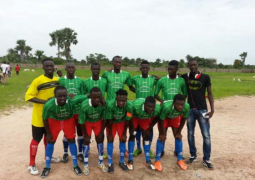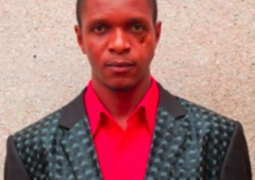The accused person, Lansana Jobarteh, was charged with broadcasting without a licence contrary to the Information and Communication Act.
Lawyer Darboe submitted that the prosecution had called two witnesses in support of their case, adding that he wished to invite the attention of the court to the Criminal Procedures Code (CPC), to acquit and discharge the accused person.
He submitted that the CPC provided that where at the end of the prosecution’s case it appeared to court that the prosecution had not laid any evidence sufficient to require for the accused to enter defence, the court shall acquit and discharge the accused person.
He argued that the charge against the accused person was laid under section 229 of the Information and Communication Act, pointing out that the Gambia Newspaper and Broadcasting Station Act could not be applied to Senegal, nor could the Media Act of Ghana be applied here in The Gambia.
Counsel went through the charge against the accused person as well as through the evidence of both PW1 and PW2, submitting that he had searched in the whole laws of The Gambia, but he had not seen and it was not stated anywhere that the usage of Skype was an offence.
He said the Freedom newspaper article that was exhibited was of no moment as it was not subjected to any cross-examination, adding that it was complete hearsay, which was why they objected to it, as it did not take the case of the prosecution anywhere.
He further submitted that both in law and in evidence, the accused had no-case-to answer as the element of the offence was not proven and the particulars showed certainly did not constitute an offence because there was no such offence known to the law, which required that a person who gives information to another person abroad by Skype commits an offence
He added that the Ministry of Information and Communication Infrastructure was the likely authority and it had not been shown that they complained.
They did not come to court to say what Mr Jobarteh did was an offence, he said, while urging the court to acquit and discharge the accused person.
In response, police prosecutor Corporal 3533 Jarju stated that before a no-case-to answer submission could be upheld by a court, it must be proven that there was no evidence connecting the accused person to the alleged offence.
He added that the test to be applied was whether the accused could be lawfully convicted by the trial magistrate at this stage.
The prosecutor pointed out that at this stage, the trial magistrate was required to take into account all inferences, the most favourable to the prosecution which could be drawn by the primary facts.
He also went through the evidence of both PW1 and PW2, and stated that exhibit B was very clear, as it showed that the accused was broadcasting without a licence.
He further submitted that the accused had a case-to-answer and should be called to enter his defence pursuant to the CPC.
The case was adjourned till 30 April 2014, for ruling.
Read Other Articles In Article (Archive)
New Charges against Ex-Superintendent Manlafi Sanyang
Mar 26, 2008, 7:45 AM
NEDI assistant secretary testifies in former Lower Saloum NAM & Co trial
Jul 10, 2015, 11:02 AM



